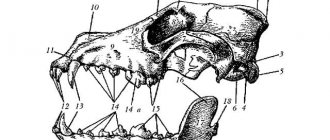Where are Omega 3 and Omega 6 fatty acids found, and why are they needed? What is salmon oil?
These are two polyunsaturated fatty essential amino acids. They are not produced in the animal’s body and only come from food. Omega 3 affects the functioning of the heart, the condition of blood vessels and skin. Omega 6 is extremely useful for neuralgia, joint diseases, high blood pressure, and inflammatory processes.
The main source of Omega 3 is sea fish and seafood. We exclude the latter due to allergenic danger. This amino acid is abundant in pollock, hake, sea bass, herring and salmon.
Omega 3 is found in large quantities in vegetable fats:
- corn,
- sunflower,
- linseed oil.
Omega 6 is also present in sea fish, but in extremely small quantities.
For normal growth and functioning, the body must receive these amino acids 10 to 1, that is, 10 parts Omega 3 and 1 part Omega 6. Otherwise, problems with cholesterol may arise, obesity will begin, and heart function will be disrupted.
To simplify the task of balancing Omega 3 and Omega 6, you can resort to industrial preparations - fish oil or salmon oil.
Salmon oil is considered more purified and combined in composition. It is a mixture of highly purified fish oil (fat) obtained from Atlantic salmon with the addition of rosemary extract.
There is an opinion that animals should be given oil, not capsules. But everything is individual.
Should I give my dog natural fish oil?
Many dogs happily lick it off a spoon like a delicacy. Fish oil is very important for your pet. It helps prevent a number of diseases. Especially important for puppies.
Components
This is a mixture of polyunsaturated fats from fatty varieties of marine fish. Contains a large amount of vitamin A, D, E. Contains Omega 3 and Omega 6 in optimal proportions. Contains iodine, phosphorus, sulfur and other microelements in large quantities. It is an oily substance of yellowish or brown color (depending on purification) with a slight odor of sea fish and a similar taste.
Properties
It is worth noting that the absorption of this product is very high. Consequently, useful substances enter the body as much as possible. Fish oil is easily oxidized and absorbed in the body. Plays a critical role in the absorption of calcium due to the high content of vitamin D. It initiates the adsorption of calcium and its transport to target tissues (for example, teeth or bones). It has a very beneficial effect on the skin and coat. Used for skin diseases, for the prevention of rickets, and for bone fractures for their high-quality fusion.
Benefits and harms
The benefits of consuming fish oil cannot be overlooked. The pet’s well-being and appearance changes after just a few days from the start of the course. It is especially well absorbed in animals and is recommended by almost all veterinarians.
In addition to strong teeth and bones, silky fur and proper skeletal structure, there is more compelling evidence for the benefits of fish oil. The heart, nervous system and brain develop better. And diseases of the musculoskeletal and cardiovascular systems are prevented.
The immunity of animals taking fish oil is also much stronger, and if a pet is susceptible to heart disease, it will be much easier for him. The pet becomes more active and cheerful. Fish oil is an inexpensive and effective remedy for animals.
Any medicine brings not only benefits, but also harm. The drug may not be suitable for some animals and in such cases the idea of using it should be abandoned. Allergies, one of the signals to complete the course, sometimes there may be vomiting or diarrhea. You can purchase the drug in two forms, liquid and capsules, and it happens when such a reaction is not to the fat itself, but to the gelatin capsule in which it is contained. In this case, you should just buy liquid fish oil and try to repeat the course.
An overdose of fish oil is very dangerous. It is imperative that you agree on the dosage and duration of the course, specifically for your dog, with your veterinarian in advance. Before purchasing, you need to carefully study the packaging and composition of the drug; it is not recommended to give your pet fish oil created using an extract from fish liver. This can lead to liver damage, kidney damage, hair loss, etc.
READ English Bulldog breed description character care how to choose a puppy
Despite the unpleasant name, taste and smell, the product has many advantages. It contains more than 20 components, but only 6 are of particular value. Let’s name them.
Vitamin A (retinol)
Microelement deficiency immediately affects the condition of the skin and coat. The latter becomes dull, lifeless, and in advanced cases, brittle. Heavy shedding is possible. Dandruff appears and the skin appears dry. Since dogs do not produce sebum as actively as we do, this is very important.
Vitamin D
Helps the absorption of various minerals, therefore it serves as an excellent means for the prevention of rickets. Improves the condition of bones and joints in general, which is especially important for artificially bred breeds. In addition, vitamin D provides a good mood and slightly reduces aggression.
They promote the synthesis of many important substances, normalize metabolism and support the immune system. Omega-3 and Omega-6 are important components of the diet. But dogs don't get enough acid from their daily food. To meet the daily requirement, the animal needs to eat a lot of fatty fish. This threatens problems with the gastrointestinal tract. We are dealing with a vicious circle: substances are needed, but it is impossible to obtain them naturally.
Palmitic acid is the basis of breast milk. Together, these substances strengthen cell membranes, prevent unnecessary oxidative reactions and reduce the risk of tumor formation. Acids stimulate the immune system. The body receives enough energy. With moderate consumption, excess weight does not appear, as fat burning accelerates.
Fish oil is the simplest and most accessible immunostimulant. It is used everywhere. The supplement is prescribed to birds suffering from fungal or bacterial skin lesions. Kittens are given medicine for viral diseases. Rodents won’t refuse treats either. It is logical to assume that treats will also be useful for dogs.
Often the supplement is prescribed to everyone. Sometimes - in too large dosages or over a long course. For some reason, people forget that not only a deficiency of nutrients is dangerous, but also their excess. If your dog eats super-premium food or does not experience health problems, it is better to refrain from adjusting the menu.
The quality of some dietary supplements is very questionable. The body of a shaggy friend is more delicate than a human one, so a bad supplement can aggravate the condition. You must be careful when choosing a product.
What could be the consequences? Fish oil has few side effects and contraindications, but if the instructions and individual reactions are not followed, the following violations are possible.
Most often it manifests itself in the form of diarrhea, sometimes vomiting. In rare cases, it occurs even when the dosage is observed. A reaction can be avoided if you introduce your pet to the treat gradually: start with a few drops.
Hypervitaminosis
With an excess of retinol, the condition of the coat and skin begins to deteriorate. Dizziness and weakness appear, joints and mucous membranes become inflamed. The dog doesn't eat well. Possible growth disturbances in puppies and problems with the reproductive system in adult pets.
Excess vitamin D is fraught with narrowing of the lumen of the arteries, increased kidney function and leaching of minerals. Bones become brittle.
It is especially dangerous if there are aggravating chronic diseases. Hemophilia and similar pathologies are a strict contraindication. With constant overdoses, even a healthy animal will have problems.
The world's oceans are polluted with dangerous substances. Fish living in the wild receive a daily dose of toxins. On farms, unfortunately, the production of the additive is unprofitable. At the purification stage, excess impurities are removed from the fat, but irresponsible manufacturers may not comply with the standards.
Dosage for puppies
Fish oil can be introduced into the diet of young animals from 6-8 weeks. How to give fish oil to a puppy depends on the growth rate of the body. You should start with 2-3 drops per day. This way we will check the animal’s reaction to the drug. Up to six months, the norm for a puppy will be 0.5-1 teaspoon (2-4 ml or 30-60 drops). The course is conducted with a break of one week. It is good to mix this drug with cottage cheese - this way it is absorbed especially readily and the absorption of calcium is enhanced.
45 drops (less than 1 teaspoon - 3 ml) is approximately equal to 6 capsules of 500 mg (0.45 g) of fish oil. For dogs of large and extra large breeds older than 6 months, the dose is increased according to body weight.
What kind of fish can you give your German Shepherd puppy?
From the above, it is concluded that giving fish to a German Shepherd puppy is not only possible, but also necessary, following the rules:
- You need to start feeding your puppy with it at 4-5 months;
- you need to carefully choose fish bones from food;
- river and lake fish are often infected with helminths and parasites - it is not recommended to feed them raw;
- it should not be given at the same time as meat or dairy products;
- during the first time of complementary feeding, loosening of the stool is sometimes noticeable, which goes away over time;
- fish fillets are fed to a puppy and an adult per day in the same amount as the animal’s meat;
- it should make up no more than 70% of all animal protein in the diet.
READ How to properly give canephron to a cat
Fish is given to the shepherd as a separate feeding and is not mixed with other foods.
The following are considered useful:
- greenling;
- heating;
- zuban;
- pink salmon;
- sea burbot;
- sea crucian;
- halibut;
- ice fish;
- bearded man;
- mackerel;
- haddock;
- salmon;
- flounder;
- croaker;
- trout;
- hake;
- salmon;
- pollock;
- sea bass;
- pollock;
- acne;
- Atlantic cod.
Sometimes the puppy refuses unusual foods. Then the owner is recommended to lightly simmer it over the fire along with the vegetables.
Animals, like humans, cannot synthesize vitamin D from ultraviolet rays through the skin and vitamin A through the liver from vegetables. Fish oil is a dietary supplement that supplies the body with these and other vitamins and microelements.
When taking vitamin D, a shepherd dog experiences an improvement in coat quality and well-being.
For growing living beings it is one of the most useful. The benefits of fish oil are great:
- increases visual acuity;
- prevents rickets and developmental delays;
- activates the immune system;
- increases calcium absorption, stimulates tooth growth and bone strength;
- improves metabolism;
- heals the skin, increases its regeneration;
- makes the coat thick and shiny.
Therefore, veterinarians often prescribe regular monthly courses of fish oil for puppies as a preventive measure, followed by a “rest” of 2-3 weeks.
But if your pet eats fatty fish, then there is no need to give fish oil to your German Shepherd puppy.
| Age in months | Daily dose in capsules | Daily dose in teaspoons |
| 0-1 | 1 | 1/2 |
| 1-6 | 2 | 2 |
| 6-12 | 3 | 3 |
This dietary supplement is also used to treat rickets, allergies, and dermatitis. The dosage rate is the same as for prophylaxis.
The effect is noticeable immediately after the first dose: the animal’s well-being improves, the coat becomes thicker, glossier and shiny. The easiest way to give the drug is with food, flavoring soup or cottage cheese.
How much fish oil does an adult dog need?
If to the question: is it possible to give fish oil to dogs, all veterinarians and breeders answer yes, then all that remains is to understand how much of it is needed to get the maximum effect without harming the animal.
Adult dogs already have a fully formed body, but fish oil, as a dietary supplement, will be useful for them to prevent a number of diseases, to maintain skin and coat in proper condition. The musculoskeletal system will receive nourishment from both bones and joints, especially in large dogs. The instructions from the veterinary pharmacy state that the dose for an adult dog will be 10-30 ml. One tablespoon of product – 15 ml. Repeat the course with breaks.
Instructions for use
Veterinarians recommend adding fish oil to dogs' food throughout their lives. This dietary supplement is an excellent preventative against:
- developmental delays;
- canine distemper;
- diseases of the heart and blood vessels;
- allergic diseases;
- digestive disorders;
- premature vision loss.
For puppies, small-sized dogs (Pomeranian, Yorkie), medium-sized (Laika, Labrador), large (Caucasian Shepherd, Mastiff) breeds, different dosages are required.
For puppies
Normally, babies from two months to six months should receive 200 units of the supplement per 10 kg of weight. This volume is contained in two capsules or one teaspoon of liquid oil. In this case, it is necessary to give fish oil to any puppy for 2 weeks, and then take a break for the same period.
While feeding the medicinal supplement, it is necessary to monitor the condition of the puppy. Individual intolerance is indicated by hair loss, itching, and eating disorders. In this case, you should stop taking it and after six months try giving fish oil from another manufacturer.
For adult animals
Adult dogs do not need to increase the dose. They should take the same amount of fish oil as puppies. After all, the period of their growth has ended, the body has formed, the immune system works without failures.
Veterinarians recommend enriching your pet’s diet with this product for two weeks every six months.
Giving fish oil to an adult dog is easy. Unlike humans, animals like its pungent smell. The dog eats food or porridge with this useful additive without any whims.
In rare cases of refusal to eat, form balls of meat or cottage cheese and hide the capsule inside. Play with your pet by making him catch treats on the fly.
Can dogs eat cod liver?
Cod liver is very rich in vitamin A. If a dog eats this product in large quantities, vitamin A hypervitaminosis will develop. Its consequences are deplorable and are known to everyone. The first sign is dullness and hair loss. Animals love this product, but large quantities are harmful. Therefore, when asked whether dogs can have cod liver, veterinarians answer very carefully. This product can be given as a delicacy and in very limited quantities.
Side effects
The supplement is widely used in the treatment of various diseases and their prevention. Sometimes side effects are observed during its use.
Their appearance is due to the following reasons:
- overdose;
- non-compliance with storage rules;
- allergic reaction;
- use of low quality products.
The following negative changes are noted:
- gagging;
- nausea;
- diarrhea;
- obesity;
- drowsiness;
- apathy;
- lethargy;
- suppression of the immune system.
Possible harm
There are problems with digestion, stool, and vomiting. Such changes indicate the need to abandon fish oil.
Harm to the product is observed if the specified dosages are not observed.
The following problems are possible:
- oversaturation with vitamin A leads to deterioration of the skin and coat, dizziness, loss of appetite, and disturbances in the reproductive system;
- excessive concentration of vitamin D provokes the appearance of problems with blood vessels, intensive urine production, calcium deposition in soft tissues, and the development of osteoporosis;
- regular overdose causes the development of diabetes and hepatitis;
- consuming the product in large quantities leads to gastritis;
- systematically exceeding the permissible dose helps reduce blood clotting, and there is a risk of bleeding;
- Heavy metal poisoning occurs when using a low-quality product.
Possible allergy
It is rare in animals, but there is an allergy, with digestive problems, stool problems, and vomiting.
Such changes indicate the need to stop taking fish oil.
Allergies are often caused by the capsule shell; in this case, the pet should only be given its contents. The capsule is punctured and the liquid is squeezed into the animal's mouth.
How to choose healthy fish oil?
You should choose a highly purified product, especially for puppies. Adult dogs with strong immunity and a healthy gastrointestinal tract can use regular fish oil. Salmon oil is recommended for small breeds as a more dietary product.
It is important to monitor the expiration date of the product and before giving it, be sure to check the contents for the absence of foreign odors, impurities, flakes and sediments. The suitable product must be shaken before use. The smell should correspond to the light smell of sea fish.
Sea fish meat should be used as raw material for production:
- mackerel,
- herring,
- hake,
- tuna.
Liver in large quantities is harmful; it is oversaturated with vitamin A.
If you choose the drug in capsules, then refer to the children's dosage in the instructions. The drug should be stored in the refrigerator.
How to give correctly?
Pets can be given fish oil regularly, starting from two months of age. The only thing is that veterinarians recommend taking a week break every 2-3 weeks between doses. Or, you can give your dog this supplement 2-3 times a week, adding it to morning and evening food.
Fish oil must either be mixed into your dog’s food or given directly in a capsule .
For adult pets
It should be given to older dogs with caution and in small quantities. Since it can put stress on the liver.
Adult dogs do not need to be given this product. It can be perfectly replaced with any vitamins. And if you feed your animal a balanced diet that already contains certain microelements, then you should not give additional food additives.
Important: it is recommended to add fish oil to dogs in the autumn-spring period, when the animal’s body is deficient in vitamins.
Some believe that fish oil is best given to animals along with cottage cheese . There is no specific evidence for this technique, but the drug is indeed better absorbed with dairy products.
Can it be given to puppies?
But for two-month-old puppies, this supplement should be administered gradually and carefully , starting with a few drops and gradually increasing the dose to several teaspoons.
Veterinarians also recommend adding the drug to animals that have weak immunity or have recently been ill.
To summarize, fish oil is beneficial for animals. If you want your pet to grow up healthy, cheerful and beautiful, take proper care of it and provide it with the necessary amount of vitamins and minerals.
conclusions
Fish oil is very beneficial for your pet, but an overdose of it is dangerous. Healthy adult dogs can be given regular veterinary fish oil. For puppies and small breeds – highly purified. Salmon oil is a more dietary and pure product. The ratio of Omega 3 and Omega 6 in the product is optimal. Contains vitamin A, D, E, iodine, phosphorus, sulfur. It promotes calcium absorption and is used as a prophylactic. It is important to know exactly how much fish oil to give your dog and to take breaks from taking the drug.
Please follow and like us:
Nikitin Sergey
I write about dogs based on the experience and knowledge gained during my studies as a veterinarian, work in my specialty, and simply from observing my pets.
Criterias of choice
You can find fish oil for dogs on sale in the form of liquid in a bottle or capsules. There is no difference between them, the only thing is that the drug in bottles is cheaper. Some dogs like capsules, but in general, the choice depends only on your preferences.
Fish oil capsules are much easier to give dogs than liquid fish oil.
Veterinary fish oil for dogs is sold in specialized stores. Its composition is the same as that of the drug from a regular pharmacy. When choosing, you should focus on the following criteria:
- Northern varieties of fish contain more vitamins, so check the composition before purchasing;
- the presence of salmon oil will help better absorption of the drug;
- Make sure that fish oil packages are stored properly. In too warm rooms, the fat will simply die and become unfit for consumption;
- It is desirable that the supplement be extracted from the muscle mass of the fish, and not from their liver, since the latter contains an excess of vitamin A, which in large doses is harmful to the dog’s body;
- fish oil must be highly purified;
- The composition should not contain additional additives such as rosemary or lemongrass.











